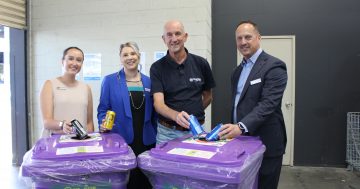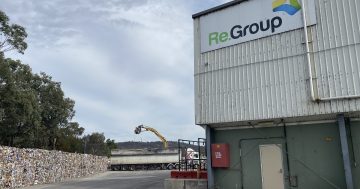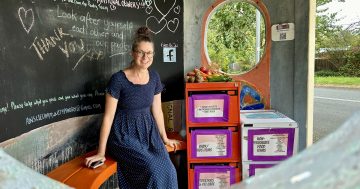NSW is considering implementing a deposit scheme for glass and plastic bottles and aluminium cans. After dodging 16 clusters of broken bottles on Canberra’s cycle lanes on my commute to work today, I think we should seriously consider this too.
South Australia has had one for many years and the system works efficiently overseas. When you buy a drink in a glass or plastic bottle or aluminium can, you get charged an extra amount (typically 10c), which you can then redeem when you recycle the bottle/can.
The benefits are clear. In British Columbia, where I lived for 2 years, there was no street litter in the form of bottles or cans. There was no broken glass on the roads. Far fewer flat tyres for bikes and cars. Reported recycling rates are between 85 and 94%. Public bins have an extra shelf around the rim to put your drink container so that other people could collect it to recycle if you didn’t want to. Most large stores would redeem the containers, and there were vending machines where you put the container in and get cash out. This, in a province that already has a roadside recycling program.
Canada, Germany, NZ, the Netherlands, Denmark, Sweden, Norway , Finland and 11 US states have legislation for deposit schemes. Germany and Holland report 95% recycle rates for deposit containers. Michigan reports 97% recycling of these containers. Roadside litter is reduced by up to 65% in those states with a deposit scheme, compared to those without, and the reduction of roadside sharps (broken glass) is even better.
If NSW implements this, ACT should also. We are geographically enveloped by NSW, and it would streamline the deposit process so that no matter where the drink container is bought, it can be recycled for cash in ACT or NSW. It would prevent people from buying drinks in ACT (without a deposit) and then taking them to NSW to claim a deposit.
ACT Chief Ministers have claimed that our recycling is already high (around 72% for 2009-10). However, this number is arrived at by looking at the amount of potentially recyclable materials placed in standard domestic (non-recycle) bins. It does not take into account the amount of containers thrown into public bins and discarded by the roadside. It is an underestimate of how much we recycle.
We have much room for improvement and a deposit scheme seems to work extremely well.





















